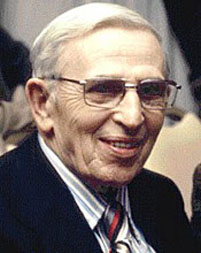 The Power and the Glory, The Heart of the Matter and The Quiet American are usually considered Graham Greene's best novels, but I have long had a fondest for his lighter work, specifically Our Man in Havana, Travels with My Aunt and Monsignor Quixote. These are hardly comic novels, for they deal with serious issues, but they are lighter in tone than most of Greene's work.
The Power and the Glory, The Heart of the Matter and The Quiet American are usually considered Graham Greene's best novels, but I have long had a fondest for his lighter work, specifically Our Man in Havana, Travels with My Aunt and Monsignor Quixote. These are hardly comic novels, for they deal with serious issues, but they are lighter in tone than most of Greene's work.I have read Travels with My Aunt (1969) three times and just finished a second reading of Monsignor Quixote (1982). That the latter novel, just 221 pages long, represents a retelling of Don Quixote by Miguel de Cervantes should be obvious from the title. In addition, references to Cervantes's work can be found on just about every other page. What I didn't realize until this second reading is that in Monsignor Quixote, Greene also retells the story of Travels With My Aunt.
In both stories an innocent of mature years (a retired bank manager named Henry Pulling in Travels with My Aunt and a Spanish priest who thinks he's descended from Don Quixote in Monsignor Quixote) hits the road with a much more worldly companion. In the earlier novel, that character is Henry's Aunt Augusta, a former high-class prostitute in Paris who returns for the funeral of her sister, Henry's mother, and then pulls Henry away from his flower garden to see the world with her. In the retelling, the priest unexpectedly is made a monsignor, then goes on a holiday with a Communist former mayor he calls Sancho in the old car he calls Rocinante. In each case, the trip proves to be an eye-opening experience for the innocent. The new monsignor is surprised to learn he is spending a night in a brothel and then is taken to an erotic movie, which because of its title, A Maiden's Prayer, he assumes must be a religious film.
In both of these novels, the trip broadens the horizons of the main character, while bringing a measure of grace, love and acceptance to the more worldly secondary character. The "appalling strangeness of the mercy of God" has been described as a dominant theme in Greene's work, and one can find traces of that theme in these two novels, and especially in Monsignor Quixote.
And by the way, Cervantes was born on this date in 1547. Thursday will be the 110th anniversary of Greene's birth in 1904.






